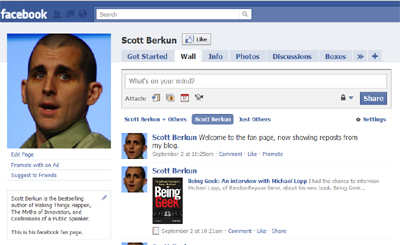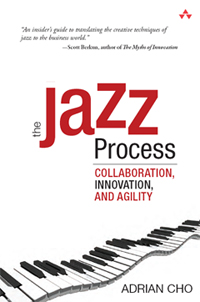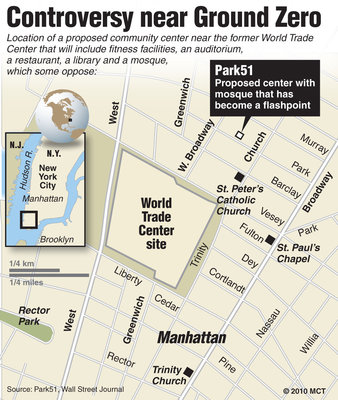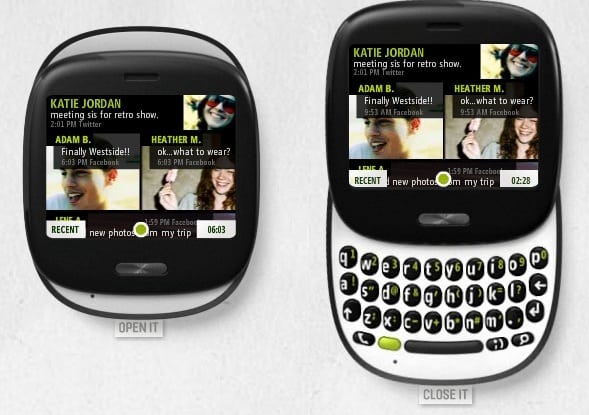“If you write for yourself, you’ll always have an audience.” -Bruce Springsteen
“We can secure other people’s approval if we do right and try hard; but our own is worth a hundred of it, and no way has been found out of securing that.” – Mark Twain
It will take many hours to write a book. Therefore, you should write about something you, the writer, finds interesting. Why not please yourself?
“Will anyone care about my story?” people ask. Yes – you. It starts with you. Many people with an idea want an authority to tell them their idea is worthy. Why is approval necessary? You are the one who is going to do all the work. No matter what support you get, or don’t, it will still be you that must put in many hours. If you think you want to write a book, than do it. I think you should, simply because you are thinking about it.
However, if you want a guarantee that you will sell thousands of copies, that’s a marketing problem, not a writing problem. You solve a marketing problem by studying how to market and sell books, which is a different skill from writing them. If you want a guarantee that you’ll be famous, that’s an ego problem, and also has little to do with writing. Writing is just a kind of work. Only you can decide you care enough about your idea to do the (writing) work required.
If you think your story can help people, that’s excellent. But it’s unlikely that you’d be the first to write about:
- Being a recovering drug addict
- Surviving divorce
- Starting a successful company
- Learning a major life lesson the hard/easy/fun way
- Or whatever story, fictional or true, you want to write about
If you primarily want to help people, a far easier way is to find good books that already exist and convince more people to read them. The authors of those books will be grateful, and the readers who connect with them will be too. Writing a book yourself is the long way to go in helping other people.
If you’re thinking of writing, do some homework: does a book like yours exist? It probably does. The question then is: how is your story is different? Or can you tell a similar story in a better way? Or aimed at a different audience? You’ll be a better writer if you become a better reader first. But of course independent of what others have done, you can decide you want to write your book anyway. You’ll learn much about yourself if you do. It’s an excellent investment of time, but only if you think it is too.
I say don’t wait for permission. Permission on creative matters is for cowards. Just write a draft of a single chapter and see what happens. Maybe it will be awful. Maybe wonderful. Who knows? No one. Not until you get off your ass and make the thing. Writing is easy bravery. No lives are at stake. You’re not doing heart surgery or charging across flaming trenches. Pick up the pen, go to the keyboard, and use your words. No one will see but you – why be afraid of yourself? If you care about the idea for the book, do it. If you find it worthwhile or meaningful, that’s enough. Your idea is good because it’s yours, and it means something to you.
If in the end only one other person on the planet gets value from what you make, that alone justifies your efforts. That person might be a close friend, a distant stranger, or possibly even yourself, years later, when you rediscover this amazing thing you made, amazing simply because you made it. Your book idea is good because it’s yours. Whatever it is it’s good enough to be the book that you write. If an idea lingers in your mind, and won’t leave you alone, just do it. The only chance for sanity is to get the idea out of your mind and down on paper or on a screen.
If you think the story should be told, whether it’s yours, your Mom’s, or your imaginary friend Rupert’s, you are the only person in the world capable of telling it in the way you have it in your mind. Fiction, non-fiction, memoir, fantasy, a play, a novella, a blog, first person, third, a third person fantasy novella about Smurf memoirs, who cares? Form is a distraction. Certainly at first, and maybe always.
“All fiction is derivative, a fact that the good writer turns to his advantage, making the most of reader’s expectations, twisting old conventions, satisfying expectations in unexpected ways. “ – John Gardner, The Art of Fiction
So what if your idea is not original. The last 2000 years of literature is mostly borrowed from Sophocles and his buddies, or Shakespeare, or the ancient myths. It’s clear the telling of the tale can be more potent than the tale itself. And for those ignorant of the books you’ve read, your story, however trite to you, might just blow their mind.
Don’t pester others for validation before you’ve written a word. Instead ask them to support your excitement and passion, for they can do that no matter how little sense your idea makes to them. Feedback? Sure. But feedback on an idea is mostly worthless. What confirmation do you need, or could you possibly get, for your own interest in an idea? The only way to know if an idea is ‘good’ or ‘bad’ is to do something with it.
And if you make it, and others don’t like it, you’re in good company. No author or artist has made something everyone likes. And for many authors and artists their friends were their only fans in their lifetimes.
Ideas can seem to tease us in our minds – they hover out of reach, too far for mere thinking to knock them on their ass. It’s only the act of making an idea real, through writing, drawing, filming or other manifested work that we pin ideas down long enough to discover what they can or cannot be in the world. Many will crumble. Some will disappoint. Some might need to linger again in our minds, for weeks or years. But the glory is that in every attempt there are new seeds to plant elsewhere. There is always more. People who never make anything don’t know this, but there is always more. You lose nothing by making. If your idea fades, before it disappears it will help you find others.
It’s only through effort that we learn what an idea actually is, and if our passion for it will last or fade. There is no shame in failure – all makers fail. But it’s hard to respect someone who never tries, even once, to do something good that’s always on their mind. If you’re worried about how good your idea is, you’re worrying about the wrong thing.
Get started. It’s the only way. If this essay doesn’t get convince you, and yet you keep thinking about writing, this might explain why.
Or if you want to begin, go here.
[edited 12-5-15]
 I saw Ira Glass, of This American Life (TAL) fame, speak recently in Seattle at Benaroya Hall. Years ago I met him backstage at a conference in NYC. He’s tall. and thin. And very funny, nice and slightly sarcastic all at the same time. We chatted about my sacred NYC places tour, which he seemed both entertained and baffled by. Very human and friendly, much like what you’d expect him to be based on TAL.
I saw Ira Glass, of This American Life (TAL) fame, speak recently in Seattle at Benaroya Hall. Years ago I met him backstage at a conference in NYC. He’s tall. and thin. And very funny, nice and slightly sarcastic all at the same time. We chatted about my sacred NYC places tour, which he seemed both entertained and baffled by. Very human and friendly, much like what you’d expect him to be based on TAL.





 We’re very proud, in this day and age, of our capacity for consuming information. We often brag (or lament) about the speed of the world and the acceleration of change. Surely our TED talks, lightning talks, and
We’re very proud, in this day and age, of our capacity for consuming information. We often brag (or lament) about the speed of the world and the acceleration of change. Surely our TED talks, lightning talks, and 


